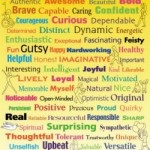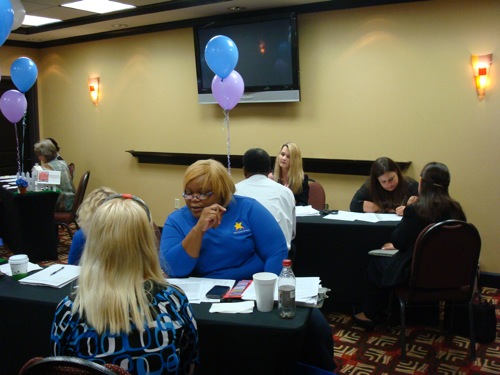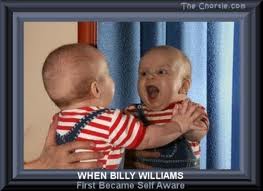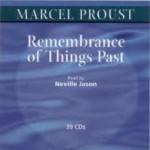
June Magazine 2012



To view this protected post, enter the password below:

Know What Makes You Great
By Marissa Ermelinda Maldonado
Searching for a good job can be time consuming and stressful and many people become discouraged when they go through numerous interviews and still turn up with no job offer in hand. One way to relieve stress is to know yourself and what makes you tick. Most people make the mistake in trying to improve their weaknesses, but what they should be doing is finding out what strengths they possess and find ways to enhance these qualities. 
Everyone has weaknesses and strengths. The key factor is searching for a job where you can put your personal strengths to good use because this will help you excel in the work place. Because everyone has different strengths, it is important to know which ones you have in order to make yourself more marketable to the employer.
Think of yourself as a product and each employer as a consumer shopping for the best product on the market. You have to use your unique strengths to show the employer how you can be valuable to an employer’s company. What sets you apart from the rest of the products? A reliable test that a lot of top universities use in order to assess strengths that students have is found on Strengths Quest. This test has 34 possible strengths and once a person takes this accurate test, it will give each person their top five strengths.
The website address is http://www.strengthsquest.com/content/141728/index.aspx. Remember not to spend too much time overthinking the questions and pick the answer that you feel best describes you.
Once you know your strengths, you can communicate these strengths during an interview. Notorious interview questions that give interviewees a hard time are the open-ended ones such as “Tell us about yourself.” or “Why should we hire you?” or even “Why do you think you are a good fit for this position?”
The problem is that most people tend to go blank or others end up rambling on and on about personal details that have nothing to do with the question. A way to eliminate this problem is to already know your strengths and to elaborate on how these strengths can benefit the employer and the company. When an employer  asks you to tell them about yourself, you cannot just tell them anything that pops in your head. The employer is listening for reasons why they should hire you. These types of interview questions are also a test to see how prepared you are for the interview. I would recommend discussing only your top five strengths and elaborate from there. If you list too many different strengths, the employer might become overwhelmed. If the employer takes the time to tell you a little bit about how their company operates or what their main goals are, do not be afraid to say how your strengths fit with the company goals or how your qualities can help or enhance their objectives. Not only does this type of strategy show confidence in your abilities, but it also shows that you can communicate efficiently by listening to what the employer has said and saying what you need to say in an eloquent manner.
asks you to tell them about yourself, you cannot just tell them anything that pops in your head. The employer is listening for reasons why they should hire you. These types of interview questions are also a test to see how prepared you are for the interview. I would recommend discussing only your top five strengths and elaborate from there. If you list too many different strengths, the employer might become overwhelmed. If the employer takes the time to tell you a little bit about how their company operates or what their main goals are, do not be afraid to say how your strengths fit with the company goals or how your qualities can help or enhance their objectives. Not only does this type of strategy show confidence in your abilities, but it also shows that you can communicate efficiently by listening to what the employer has said and saying what you need to say in an eloquent manner.
When you communicate that your strengths coincide with the objectives and culture of the company, the employer will see that you are not only valuable, but  you are also a good fit. Do not try and guess what qualities the employer is looking for and pretend that these are the qualities you possess. The fact of the matter is that it is too hard to guess what the employer is thinking. Even if you do not think your top five strengths match what the employer is looking for, you still need to stick to your guns and be honest about what strengths you have. This is your chance to be creative and really think of how your strengths can be a good fit for the job position you want.
you are also a good fit. Do not try and guess what qualities the employer is looking for and pretend that these are the qualities you possess. The fact of the matter is that it is too hard to guess what the employer is thinking. Even if you do not think your top five strengths match what the employer is looking for, you still need to stick to your guns and be honest about what strengths you have. This is your chance to be creative and really think of how your strengths can be a good fit for the job position you want.
 The best course of action that you can do is to research the job position you are applying for instead of merely reading the short description listed under the name of the job position. You, as the job searcher, need to research the company itself because knowledge is power. During the interview, the employer could put you on the spot and ask, “What do you like about our company?” or “Why do you want to work with us?” If you find yourself in this situation, then, you will be more than prepared because you did the research beforehand.
The best course of action that you can do is to research the job position you are applying for instead of merely reading the short description listed under the name of the job position. You, as the job searcher, need to research the company itself because knowledge is power. During the interview, the employer could put you on the spot and ask, “What do you like about our company?” or “Why do you want to work with us?” If you find yourself in this situation, then, you will be more than prepared because you did the research beforehand.
Below is a description of the 34 possible strengths that exist on Strengths Quest, read them over and pick which ones you think describe how you are and then take the test online and see if the results match what you initially thought. I want you, as a conscious reader, to really take this advice and the results of the strengths test as serious tools you can use at your disposal. Remember that no strength theme listed is more superior to the other and all possible strengths are useful, hence why they are called strengths and not weaknesses.
Strength Descriptions
| Strength | Description |
| Achiever | You have a constant need for achievement. You have strong drive and determination. Every day you start at zero and by the end of that day and every single day, you must achieve something tangible. You are pushed to do more. |
| Activator | “When can you start?” This is a re-occurring question in your life. You rely on action versus deep analysis and debate. You make a decision, you take action, you look at the result, and you learn. It is the only way to keep you thinking fresh and informed. It pleases you to know that you will be judged by what you have done versus what you think and say. |
| Adaptability | You live in the moment. You see the future as a place that you create out of the choices you make right now and not as a fixed destination. You are able to respond willingly to the demands of the moment and you don’t resent sudden requests or unforeseen detours. You are a flexible person that can stay productive when the demands of work are pulling you in many different directions at once. |
| Analytical | You see yourself as objective and dispassionate and you want sound ideas and theories. You like data because it is value-free and you have no agenda. You thrive on finding connections and patterns among data which makes you a critical thinker. |
| Arranger | You are a conductor. When you are faced with a complex situation involving many factors, you enjoy managing all of the variables and arranging them in the most productive configuration possible. You try and figure out the best way to get things done. |
| Belief | You have certain core values that are enduring. Your beliefs affect you by making you more altruistic, highly ethical, family-oriented, and responsible. You see success as more than just money and it provides you with direction and it guides you through temptations. |
| Command | You like to take charge. You feel no discomfort with imposing your views on others. People are drawn to you because you have presence and you have no discomfort taking a stand. |
| Communication | You like to explain, describe, to host, to speak in public, and to write. You feel the need to bring events to life, to energize them, to make them exciting and vivid. You turn stories into events and practice telling them. You inspire people to act and others are interested in what you have to say. |
| Competition | You are instinctively aware of others’ performances. You feel the need to compare yourself to others. Other competitors invigorate you. You compete to win. |
| Connectedness | Things happen for a reason and you are sure of it. You feel that we are all connected and we are all part of a larger picture. You are considerate, caring, and accepting. You are a bridge builder for people of different cultures. |
| Consistency | Balance is important to you and you are aware of the need to treat people the same, no matter what their situation in life, so you don’t want to see the scales tipped too far in any one person’s favor. You believe that people function best in a consistent environment where the rules are clear and are applied to everyone equally. |
| Context | You look back. You look back to understand the present. You make better decisions because you sense the underlying structure. You become a better partner because you understand how your colleagues came to be who they are. |
| Deliberative | You are careful. You are vigilant. Everything may seem in order, but beneath the surface you sense the many risks. Rather than denying these risks, you draw each one out into the open. Then each risk is identified, assessed, and ultimately reduced. You like to plan ahead to anticipate what might go wrong. For you, life is not a popularity contest, it is a minefield. You identify the dangers, weigh their relative impact, and then place your choice. |
| Developer | You see the potential in others. In your view, each person is a work-in-progress. When you interact with others, your goal is to help them experience success. You look for ways to challenge others and you devise ways in order to help them grow. |
| Discipline | Your world needs to be predictable. You focus on routines, timelines, and deadlines. You break long-term projects into a series of specific short-term plans and you work through each plan diligently. |
| Empathy | You can sense the emotions of those around you. You hear the invoiced questions and anticipate the need. People are drawn to you because you help them find a voice to their emotional life. |
| Focus | “Where am I headed?” you ask yourself. You are always setting goals and these goals serve as your compass, helping you determine priorities and make corrections to get back on course. You evaluate whether or not a particular action will help you move toward your goal. You are an extremely valuable team member because you keep everyone on point. |
| Futuristic | You love to peer over the horizon. The future fascinates you and others want to latch on to you because of the hope you bring. |
| Harmony | You look for areas of agreement. You will modify your own objectives to merge with theirs and you will strive to find common ground. |
| Ideation | You are fascinated by ideas. You like to figure out different concepts and get a jolt of energy when you produce a new idea. |
| Includer | Your belief is to stretch the circle wider. You want to include people and make them feel a part of the group. You want to expand the group so that as many people can benefit from its support. |
| Individualization | You are intrigued by the unique qualities of others. You observe each person’s style, each person’s motivations, how each thinks, and how each builds relationships. Because you are such a keen observer, you can draw out other people’s strengths. |
| Input | You are inquisitive. You collect things. You collect things that interest you and this keeps your mind fresh. |
| Intellection | You like to think and you like mental activity. You are very introspective. |
| Learner | You love to learn. You are energized by the steady and deliberate journey from ignorance to competence. Your excitement enables you to thrive in dynamic work environments where you are asked to take on short project assignments and expected to learn a lot about the new subject matter in a short period of time. |
| Maximizer | Excellence, not average, is your measure. Transforming something into something superb is thrilling. You want to capitalize on the gifts with which you are blessed because it is more productive. |
| Positivity | You are generous with praise, quick to smile, and always on the lookout for the positive in the situation. People always want to be around you. You find ways to make everything more exciting and more vital. |
| Relator | You are pulled toward people you already know. You are comfortable with intimacy and you are willing to accept risks in your relationships with others. |
| Responsibility | You take psychological ownership for anything you commit to, and whether large or small, you feel emotionally bound to follow it through to completion. Excuses and rationalizations are not acceptable. |
| Restorative | You enjoy the challenge of analyzing the symptoms, identifying what is wrong, and finding the solution. You love to solve problems. |
| Self-Assurance | In the deepest part of you, you have faith in your strengths. You are confident in taking risks, making claims, accepting challenges, etc. No matter what the situation, you seem to make the right decision. |
| Significance | You want to be known for the unique strengths you bring to the table. You want work to be a way of life instead of just a job. |
| Strategic | You are able to sort through the clutter and find the best route. You can see patterns where others see complexity. |
| WOO | (Winning Others Over) You thrive on meeting new people and getting them to like you. Strangers don’t intimidate you at all. |
What do you think? Where do your strengths fall? Take the test and know, for a fact, what makes YOU great! △

Marissa Maldonado attended McLennan Community College for two years and transferred to Baylor University where she obtained a Bachelor of Arts Degree in Psychology and plans to seek employment within her field and later consider graduate school in the near future.

And they just kept coming and coming and coming….
“Coming to what” you ask? Almost 200 job applicants attended the May 22nd Advanced Job Search Event sponsored by Workforce Partners Management Group in conjunction with CampusJobXpress.com. This event, held at the Hampton Inn and Suites South in Waco, Texas,  matched job seekers and screened applicants for future placement with appropriate employers.
matched job seekers and screened applicants for future placement with appropriate employers.
At a steady rate of 35 applicants per hour, the WIA Dislocated Workers came. For five hours, staff introduced applicants to employers seeking good qualified employees. Each employer sat down with an applicant and took the time to get acquainted. They reviewed and discussed resumes, skills and abilities. For many, this was one of the few times they have had a chance to interview with an employer.
There was no one rushing them, no competition for space at a crowded table and certainly no 114. It was just a one-on-one conversation. This is what WPMG calls a “Job Event Showcase.”
In an adjoining room, 5 different stations were made available to the dislocated workers. The stations consisted of Profile Updating, Photo Booth, Resume Review, Pre-Screening and a WIA table. Applicants provided information for their profiles; they had their pictures taken; their  resumes were reviewed by a resume instructor and they were pre-screened by a placement specialist.
resumes were reviewed by a resume instructor and they were pre-screened by a placement specialist.
“What is all of this about?” someone asked. The answer is simple, “We are advancing your job search, thus, attempting to place you within ten weeks of your receiving unemployment benefits.”
The profiles maintained within the CampusJobXpress.com system is made available to all employers for them to access the summary of (profile information) qualifications. In this manner, employers can choose to review resumes that seem appropriate for their job postings. It tells the employer the most current and updated information available on any applicant at any time.
A picture is then taken for employers to seek out potential applicants. The idea is for the applicant to impress the employer with his or her appearance.
 Resumes are reviewed to ensure that their skills, knowledge and qualifications are showcased
Resumes are reviewed to ensure that their skills, knowledge and qualifications are showcased
A placement specialist talks to applicants determining the suitability for placement.

This article provides a starting point for you as you begin your journey in search of a new direction for your life or your career. It sets the tone for all of the actions to follow. It reminds us that a healthy understanding of our past life patterns is a prerequisite to an effective transition into the future. While it does not suggest we dwell in the past, it does encourage us to look carefully at past situations to determine which situations have resulted in the greatest gains and which have resulted in less than positive outcomes. It helps us identify which of our actions should be repeated and which should be avoided in the future.
You will be invited to participate in a series of games, assessments, and self-discussions designed to stimulate your personal introspection, encourage examination of life patterns,  examine causes for failure, and project the actions needed to ensure future success.
examine causes for failure, and project the actions needed to ensure future success.
EXPLORING SELF-AWARENESS is meant to lay a foundation for you to become aware of the way you have made up your mind about yourself. This exploration into self-image, self-concept, and self-esteem can, then, open the doors for you to upgrade your respective ideas about who you are and what you can accomplish.
The goal is to establish a way for you to upgrade and update a self-evaluation. We can stop the pain of our own attacks upon ourselves. We can begin to nurture the positive skills and attitudes that are within each of us. We can begin to feel worthy and capable just by the way  we view ourselves. We can be a hero to ourselves, a big person capable of big things.
we view ourselves. We can be a hero to ourselves, a big person capable of big things.
We begin this part of our Life Skills Adventure in the past because so much of who we are today is shaped by what has happened to us in the past. We have learned how to act, what to believe, and how to feel. For the most part, our experiences have helped us become good, healthy, and happy people; however, there are troubling bits and pieces from our past that might get in the way of allowing us to be who we truly want to become.
As we go forward, we will recognize the value of the past and recognize the value of other people who have influenced the shaping of our personalities. We will also explore the parts of our past that have hurt us, and we will use this opportunity to heal old wounds. We will think about the world and family we grew up in and how our families helped or hurt us. We will see how we modeled ourselves in the image of our parents and how we have formed our self-image from what they said about us.
We will then see how we have protected ourselves from the hurts of our past. We will come to recognize how our current problems, fears, and limitations are still tied to past experiences. Though this may bring some painful memories, our goal is to use this exploration to heal and remove the limiting influence of the past.
After thinking about the following paragraphs, examine the information about your past. Sharing this information about yourself is encouraged and it could prove to be helpful.
“Where do you come from?”
 You are invited to share your background, how you grew up, some of the things for which you are grateful, and some of the parts of your past you feel might have had some negative effect on you. Share with someone you trust – take enough time to share about some of what was most important to you. While you are sharing, the person you trust, in many ways, may know and understand what you have gone through. Many people feel uncomfortable about sharing their past. They carry shame, embarrassment, and fear into the present. If this is difficult for you, you may want to write a story of your past.
You are invited to share your background, how you grew up, some of the things for which you are grateful, and some of the parts of your past you feel might have had some negative effect on you. Share with someone you trust – take enough time to share about some of what was most important to you. While you are sharing, the person you trust, in many ways, may know and understand what you have gone through. Many people feel uncomfortable about sharing their past. They carry shame, embarrassment, and fear into the present. If this is difficult for you, you may want to write a story of your past.
It is helpful to remember that now is the present. Whatever happened does not have to keep upsetting you. Now is the time for you to begin to write a NEW story. So, once you get the story of the past out, you can get to work on a new chapter.
Let’s continue this discussion in our next issue, please join me. △